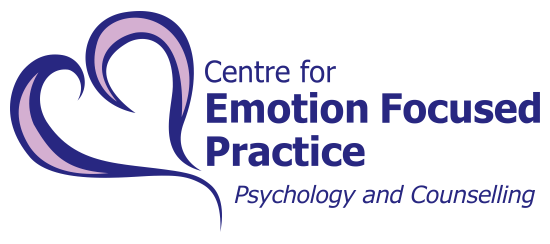The Physical Side of Mental Health
When mental health is affected, a person experiences psychological symptoms. These may be symptoms of anxiety, panic attacks, bizarre behaviours, low mood, to name a few. But how many people realise that some of their physical symptoms could be a result of mental health issues?
Symptoms like headaches, constant fatigue or exhaustion, an irritable bowel, backache – these could actually be signs of mental health problems like anxiety or stress. Mental health problems can put the body in a state where it constantly prepares itself for an impending threat which results in the fight or flight response. This response can cause the heart to beat faster, muscles to tense and the body to sweat, amongst other symptoms. Many other physical symptoms can be seen with mental health problems and below we will touch briefly on those
Mental Health is Physical Too!
“It’s all in your head,” they say… But is that true?

Image source: Internet
Racing Heart
When something is stressful, the body produces hormones such as cortisol and adrenaline. The receptors in the heart to react by increasing the heart rate. This is so that more blood can be pumped to the muscles so that you can get away or fight a pending threat.
Irritability
Mental health problems like anger issues, anxiety or panic can cause edginess which manifests itself as irritability or results in shaking or trembling in the body.
Shortness of Breath
Shortness of breath occurs when the blood pressure rises, the heart rate increases, the body sweats and dizziness are present. The body creates these symptoms as its aim is to get more oxygen to the muscles so you can flee the ‘threat’. This is most commonly seen during a panic attack.
Dizziness and Headaches
Haven’t we all, at one time or the other, complained of tension headaches? Persistent or constant worrying can result in mental health issues. This worry can lead to headaches and dizziness, which can also occur when the body changes in temperature or when the heart rate increases.
Muscle Tension
If you have chronic aches and pains in the shoulders, jaw, back and neck, this could be the body’s reaction to a potential threat or stress. Once the ‘threat’ has disappeared, these symptoms, however, continue to persist until medication is taken or techniques such as mindfulness or relaxation are undertaken.
Insomnia and Tiredness
It is tiring to feel constantly worried and this can lead to fatigue. Worry can also create physical symptoms which affect our sleep and may result in insomnia. Increased levels of cortisol and adrenaline can also affect sleep, as they cause the body to remain on alert and therefore relaxing becomes difficult.
Sweating
Sweating is a common sign of a mental illness like anxiety or panic. When the sympathetic nervous system is alerted, the sweat glands on the body awaken.
Digestive Issues
We all feel it in our gut, don’t we? Literally! The gut stores and expresses our mental health. Experts call this the gut-brain axis and this refers to the communication that occurs between the enteric nervous system and the brain. This also controls digestion. The body reacts in various ways to varied stressors and the person may experience diarrhoea, constipation, nausea and upset stomachs. Aside from the feeling of general malaise, the digestive symptoms can further exacerbate the worry of an actual medical illness.
Physical and Mental Health are Interconnected
Now that you know that the strange aches and pains that never abate, the constant tiredness, the nausea or the cramping aren’t just physical symptoms, but also mental, don’t put off visiting your friendly neighbourhood psychologist to find out if you indeed have a mental health issue. Your mental health is as important as your physical. You can’t cure one without curing the other. Your psychological well-being matters too!
Psychologists at the Centre for Emotion Focused Practice

Lara Ryan
Child, Adolescent & Adult Psychologist
I am a registered psychologist that works with individuals of all ages to really get to the heart of what it is they want and need to live a full life.

Virginia Henningsen
Registered Psychologist
I assist individuals in developing skills to manage their lives, gain enjoyment from their life, and lift and bolster their general feeling of well-being.

Lyn O’Grady
Child, Adolescent & Adult Psychologist
As a Registered Community Psychologist, I have worked with parents in community settings for approximately 10 years as well as with children and young people in school settings for 10 years.

Susanne Goldie
Psychologist
I work with a wide range of individuals in a non-judgemental, holistic way to understand each person’s unique circumstances and support them in achieving their goals. I work with people of all ages.

Hannah Lethbridge
Registered Psychologist
I provide a warm environment for clients to express their thoughts, feelings, and struggles in a safe way. My clients value the collaborative approach I take when we work towards their therapeutic goals.

Geoff Newbegin
Counselling Psychologist & Psychotherapist
I am an experienced counsellor and psychologist with over 15 years of experience, which includes a wide range of clinical experience.

Lucas Silva-Myles
Registered Psychologist
My therapeutic approach is firstly to hear your story and understand what you are going through without judgement.

Hannah Kroussoratsky
Counsellor
Gentle, caring and encouraging, my desire is to truly hear your story and create a safe space for you to grow and flourish. I have a genuine commitment to your whole self – body, mind, heart and spirit – and my integrated therapeutic approach allows for your holistic care and transformation.
If you are looking for help, whether for yourself or a loved one, the psychologists at the centre can assist in exploring underlying issues through therapy. Please visit the practitioners’ page to find out more, or call (03) 9820-5577 for an appointment or to make enquiries.
Related Articles
- You Can’t Make Sense of Happiness if You Don’t Know Sadness
- Parenting when you have a mental illness like bipolar disorder or depression
- Coping with Loss and Grief
- Depression is More Than Feeling Blue
- Bipolar Disease
- Psychological Well-Being Matters
- How Can We Build Resilience
- Top 5 Things to Do to Support a Family Member with Depression




